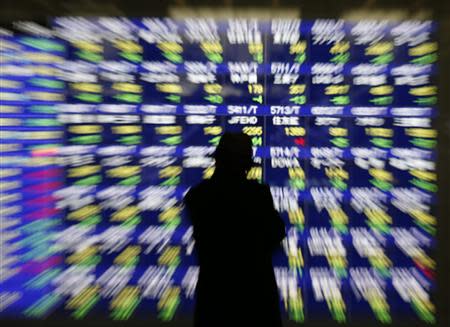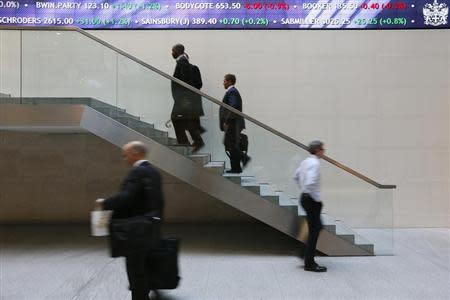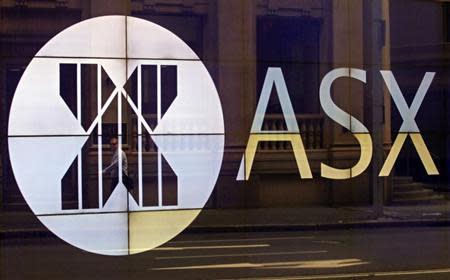U.S. stocks rise, bonds fall after U.S. data
By Herbert Lash NEW YORK (Reuters) - U.S. stocks rose and Treasury prices fell on Tuesday after a gauge of U.S. consumer spending rose more than expected in December, while a measure of global equity markets was flat on unease over the corporate earnings outlook. The Commerce Department said retail sales - excluding automobiles, gasoline, building materials and food services - increased 0.7 percent last month after a 0.2 percent rise in November. Economists polled by Reuters had expected core retail sales to rise 0.3 percent in December. The increase suggested consumer spending accelerated in the fourth quarter, the latest sign of strong U.S. economic momentum at the end of 2013. "It's conducive to the growth story that is becoming increasing popular," said Brad McMillan, chief investment officer for Commonwealth Financial in Waltham, Massachusetts. However, a stronger U.S. economy could lead the Federal Reserve to quicken the pace of dialing back its economic stimulus, a move equity markets have generally disliked. "From an economic perspective, the real economy continues to gain traction, but from a market perspective the stronger the economy looks, the more we need to look and see whether in fact the Fed might be pulling back sooner than people think," McMillan said. The pan-European FTSEurofirst 300 index <.FTEU3> of leading regional shares was unchanged, while the broader MSCI all-country world index <.MIWD00000PUS>, which tracks shares in 45 countries, was up 0.06 percent after earlier slipping by a similar margin. On Wall Street, the Dow Jones industrial average <.DJI> rose 49.70 points, or 0.31 percent, at 16,307.64. The Standard & Poor's 500 Index <.SPX> was up 11.29 points, or 0.62 percent, at 1,830.49. The Nasdaq Composite Index <.IXIC> was up 45.28 points, or 1.10 percent, at 4,158.59. As the Fed withdraws its stimulus, a major driver of the 29.6 percent gain in the S&P 500 last year, investors are expected to become more selective about stock valuations. The forward price-to-earnings ratio for the index is the highest in nearly seven years, a motive behind Monday's sell-off. U.S. Treasury prices fell. Benchmark 10-year notes were last down 8/32 in price to yield 2.8524 percent, up from 2.825 percent late Monday. The dollar gained against the yen, but traded near break-even against the euro and the dollar index <.DXY>. The dollar was up 0.62 percent at 103.62 yen, and the dollar index edged up 0.01 percent at 80.520. The euro rose 0.1 percent to 1.3684. Brent crude oil edged down toward $106 a barrel as Libyan supply picked up and a restart of Iranian oil shipments appeared closer. Recent weak U.S. economic data has also dampened the outlook for fuel demand in the world's largest oil consumer. The February Brent crude contract, which expires on Thursday, was down 49 cents at $106.26 a barrel. U.S. crude was at $92.08, up 28 cents a barrel. (Additional reporting by Francesco Canepa in London; Reporting by Herbert Lash; Editing by Dan Grebler)




